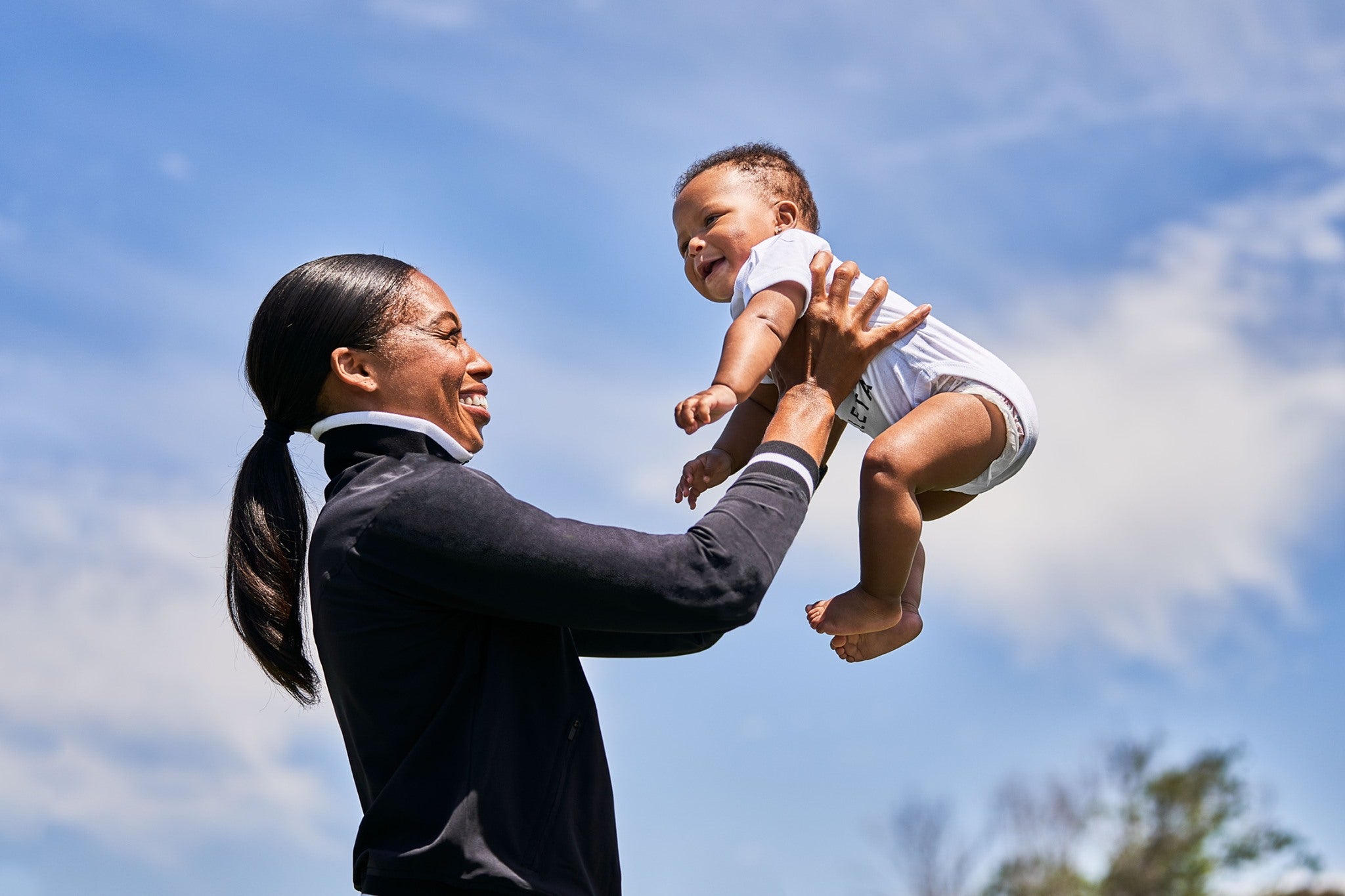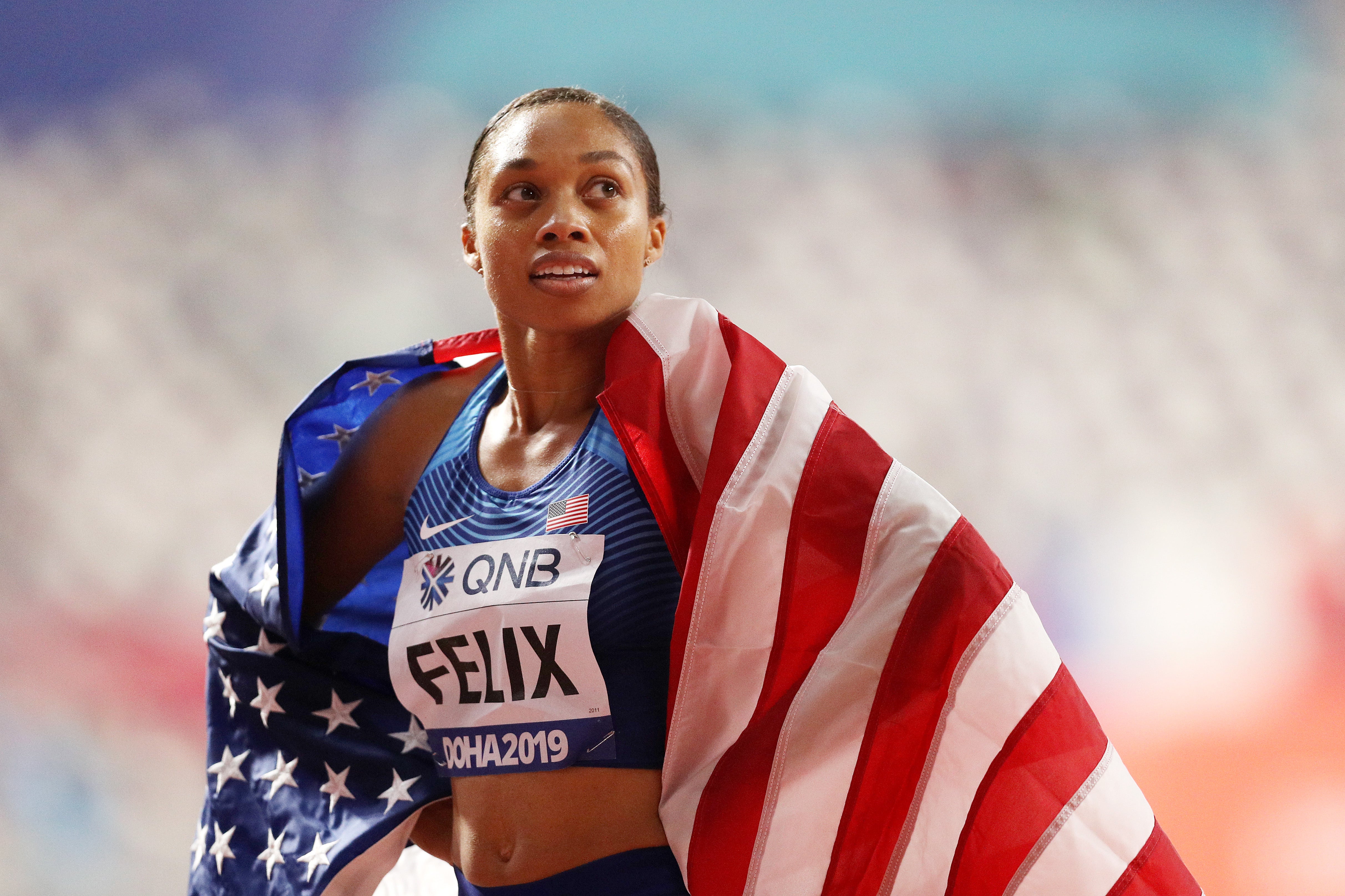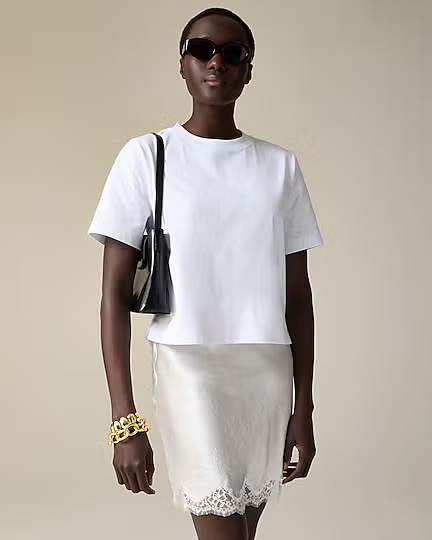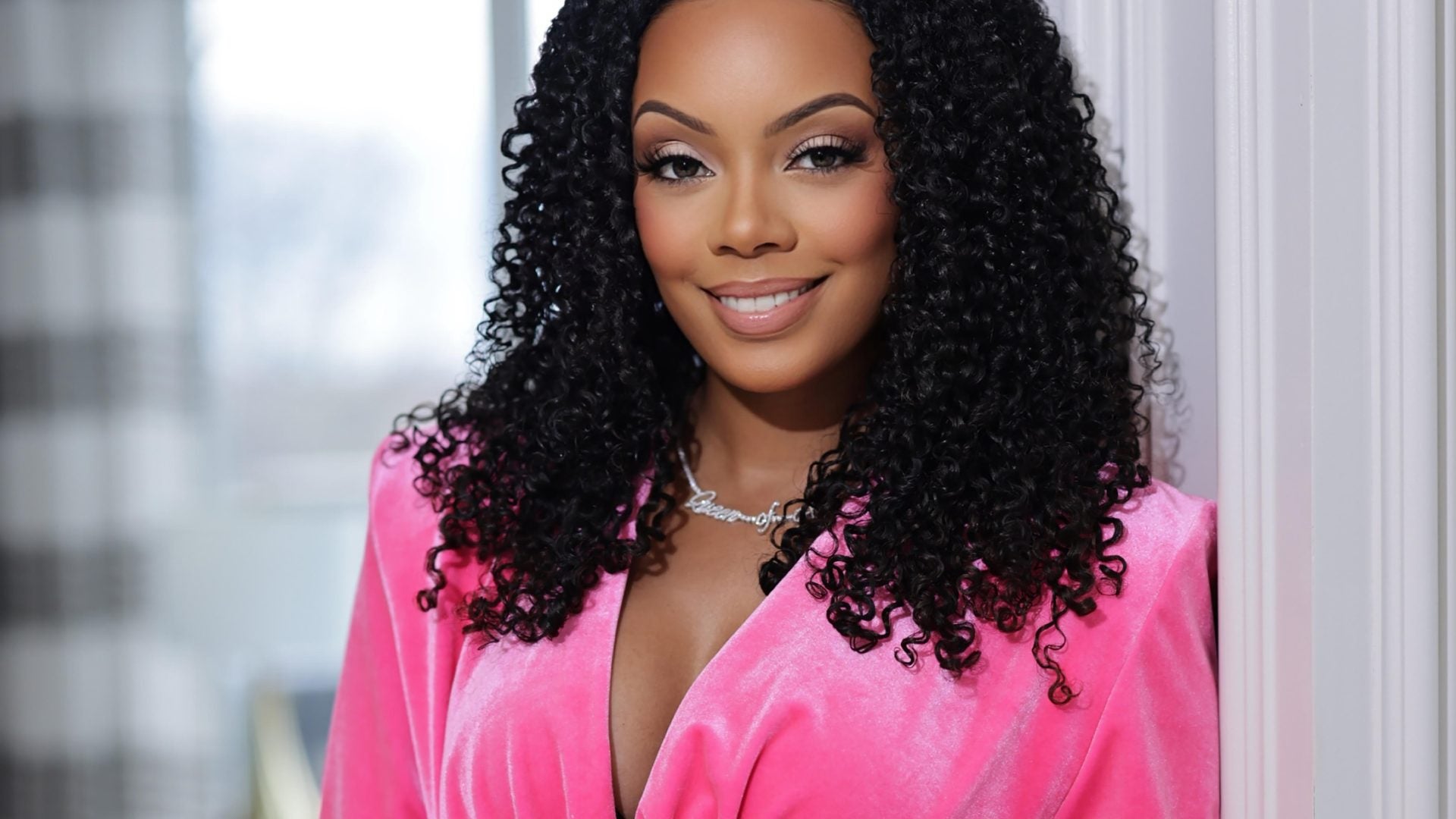
Allyson Felix has won gold medals, beaten sports records, and taken Nike to task for their unfair treatment of professional athletes post-pregnancy. But one of her greatest victories to date has been surviving childbirth.
On the heels of Black Maternal Health Week, Felix shared her emotional story with Katie Couric on the veteran journalist’s podcast Next Question. During their candid interview, the six-time gold medalist tells Couric that her experience with childbirth made her scared for her life.
It’s not the first time Felix has opened up about her maternity story. Last year the 34-year-old told ESSENCE, “I’m a professional athlete so I know how to be healthy and I never really expected to see myself in that situation. I was unaware that Black women are up to four times more likely to face death during childbirth and twice as likely to have complications.” But in her most recent interview, Felix admits that having her daughter Camryn at 32 weeks via emergency C-section was one of the most dangerous predicaments she’s ever been in.
“My family was definitely concerned,” Felix tells Couric. “And I think even more so than I was because honestly all of my attention was on Camryn.”
Felix gave birth to her daughter two months early and faced a number of obstacles in the process. A severe case of preeclampsia, the pregnancy complication characterized by high blood pressure that can affect the liver and kidneys, left the Nike spokeswoman in the hospital for several days after giving birth and spending the next several weeks trying to regulate the issue. Felix was also told that she was spilling protein.
“I didn’t realize anything was wrong until everything was terribly wrong,” Felix shares of what she now describes as the “two most terrifying days of her life.”
Though Felix tells Couric it was hard to wrap her head around it all, once she did she knew her platform had to be used to alert other Black women. “Going through this experience and just feeling so scared when I went through it all, that was the turning point for me,” Felix says.

Couric’s reason for highlighting Black maternal health is obviously a little different. She told ESSENCE matter of factly that she was alarmed by the data. “I had heard for a few years that the maternal mortality rate in the United States was one of the highest, if not the highest in the developed world. And I found this statistic so upsetting, so unnerving that I couldn’t understand what was behind that statistic,” Couric discloses. “And since my podcast is called Next Question, I thought this would be a perfect subject to explore, because I think sometimes we hear these things, but we don’t fully understand the underlying factor. So I couldn’t figure out was it access to care, what was going on? And it turns out it’s really a combination of things that has produced this very shameful statistic in the United States.”
Couric says that she’s proud of the podcast that explores the country’s shameful rise in maternal mortality in two parts. In addition to speaking with Felix in detail, she called on health experts, academics and a California lawmaker to weigh in on the matter. Charles Johnson, the son of former TV judge Glenda Hatchett, also tells the story of his wife Kira, who died giving birth to their second child.
“I have all these statistics that say Black women are three to four times more likely to die than white women due to pregnancy and childbirth-related symptoms. And some of it is inadequate medical care during pregnancy, but a lot of it is inadequate education during pregnancy,” Couric asserts. “And then there are other factors. Systemic racism plays the role, not taking women— particularly Black women— seriously enough. So these implicit biases that I think impact our interpersonal relationships, are coming into play when Black mothers are speaking about some of the issues they’re facing in the hospital or during pregnancy.”







Allyson Felix gave birth to her daughter Camryn in 2018. But still, she vividly recalls the experience as if it were yesterday. It’s by choice. The decorated athlete says it’s important for her to advocate for better health care, fight for better resources, do what she can to close the maternal mortality racial gap, all while reminding African-American women that they are at risk simply because they’re Black.





